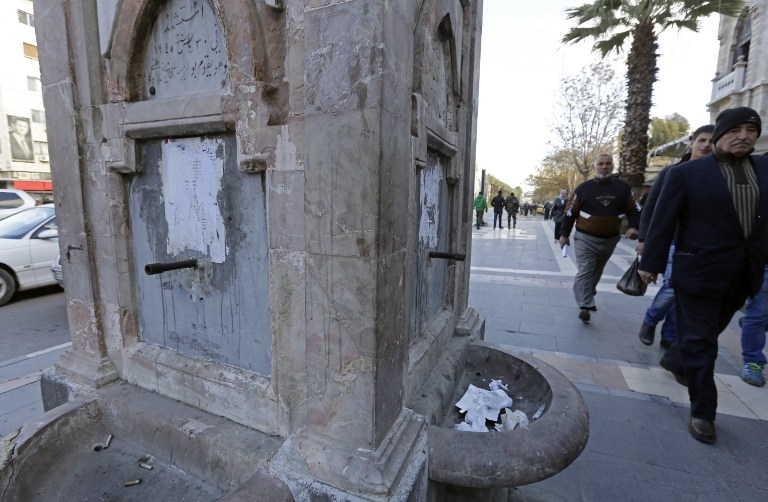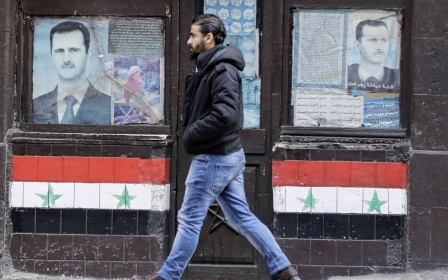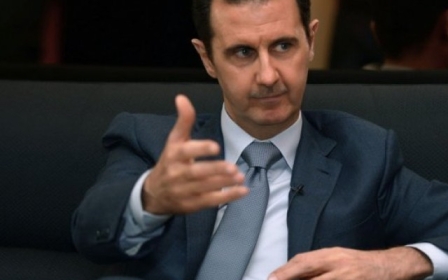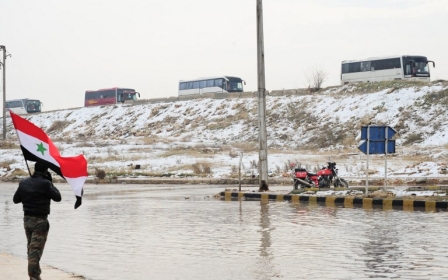'Water is life': UN warns of war crimes over Damascus shortages

The United Nations warned on Thursday that sabotaging water supplies is a war crime as more than five million people continued to face shortages following an attack on the capital's supplies.
Water supplies from the rebel-held area of Wadi Barada near Damascus have been severed since 22 December, with the government and rebels blaming each other.
The head of a UN-backed humanitarian taskforce for Syria said on Thursday the shutdown had already had "dramatic" consequences.
Jan Egeland said water supplies to 5.5 million people had been hit "because of fighting, or because of sabotage or because of both".
"To sabotage and deny water is of course a war crime, because it is civilians who drink it and civilians who will be affected by waterborne diseases" if supplies are not restored, he told reporters in Geneva.
The shortages have sent prices for water in Damascus soaring. Residents said they have been forced to buy bottled water at twice the normal price as their supplies have run low, saying that what little tap water is available is undrinkable.
"We used to complain about power cuts, but now we can see that it's nothing compared with the lack of drinkable water. Water is life," said Faiz, a 50-year-old civil servant.
Shortages prompt renewed fighting
The shortages have prompted a government assault to retake Wadi Barada.
Rebel fighters clashed with government forces backed by Lebanese Shia movement Hezbollah there on Thursday, even as a nationwide ceasefire brought quiet to other parts of Syria.
The Syrian Observatory for Human Rights said government forces hit the area with air strikes, mortars and artillery.
Syria's main opposition coalition urged the United Nations Security Council on Thursday to put an "immediate" halt to what it said were violations of the truce by pro-government forces.
It accused Syrian President Bashar al-Assad's government of "violations and war crimes" in Wadi Barada.
The government, meanwhile, says rebel forces in Wadi Barada include former al-Qaeda affiliate Fateh al-Sham Front, previously known as al-Nusra Front, which Moscow and Damascus say is excluded from the ceasefire.
Rebels deny the group is in the area.
The relative peace was also rocked by a car bombing on Thursday in Syria's coastal city of Jableh - a bastion of support for the government - which left at least 15 people dead, the Observatory said.
Syrian state television also reported the blast near the town's municipal stadium.
'Critical phase'
The fighting threatened a truce aimed at paving the way for peace negotiations later this month in the Kazakh capital Astana.
Despite backing opposite sides in the conflict, Ankara and Moscow have worked closely to broker the ceasefire and plan the Astana talks, which Turkish Foreign Minister Mevlut Cavusoglu said could take place as early as 23 January.
The ceasefire and Astana talks are the latest bid to resolve nearly six years of conflict in Syria, which has been ravaged by violence since an uprising began in March 2011.
The UN Security Council has backed the process, despite the fact it offers a competing track to UN-sponsored talks set to resume in Geneva in February.
"We, the UN, welcome such efforts," the UN's Syria envoy Staffan de Mistura told reporters in Geneva on Thursday. He said any effort that consolidates the cessation of hostilities "is certainly welcome".
Observatory director Rami Abdel Rahman said fighting had eased considerably since the truce came into force.
"The number of casualties has fallen a lot, with only 13 dead in the areas covered by the ceasefire since the truce began. That would have been the toll of a single air strike before it came into force," he told AFP.
Karim Emile Bitar, professor of international relations at Saint-Joseph University in Beirut, said Syrian ceasefires had become "merely a continuation of war by other means".
"This one is already shaky but has not yet completely collapsed," he said. "Russia and the Syrian regime have an interest in temporarily prolonging the ceasefire if only to consolidate their gains and prepare for the next battles."
Middle East Eye propose une couverture et une analyse indépendantes et incomparables du Moyen-Orient, de l’Afrique du Nord et d’autres régions du monde. Pour en savoir plus sur la reprise de ce contenu et les frais qui s’appliquent, veuillez remplir ce formulaire [en anglais]. Pour en savoir plus sur MEE, cliquez ici [en anglais].




